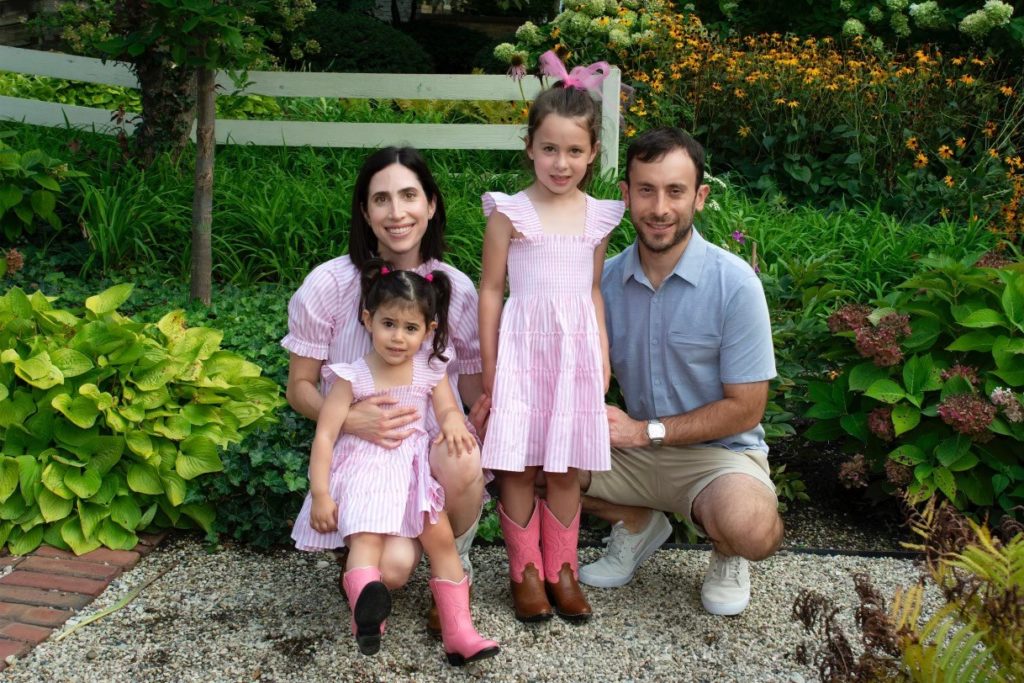
I’m a pretty cautious person. I have no problem admitting this. In fact, if you know me personally, I imagine you’re smiling and nodding in agreement. I have never possessed much of a thrill-seeking gene. As a kid, I wouldn’t go paintballing with my friends. When I was in college, I was way too scared to use a fake ID. And now, as an adult living through the pandemic, let’s just say I’ve had a low-key 21 months.
All of that said, humans have many layers, and one aspect of our personality may contradict another. This is the case for me when it comes to managing my own money, as I’m actually quite comfortable taking risks. As I’ll describe below, I believe that investment risk is the price of admission for generating attractive returns, and in a piece I wrote last summer, I described why I’m in It for the Long Run.
While I’m excited to share how I manage my money, I can’t talk about how I actually invest without doing some table setting. So, I’ll first address a few important questions:
- Why is building wealth important to me?
- What is my most important asset?
- What goals do my wife, Brooke, and I share for our future?
This is a similar approach I’d take with a client. Like I’d tell anyone, how can we get into the nuts and bolts of a portfolio before having an honest discussion about what really matters?
Why is building wealth important to me?
There are a couple of obvious reasons why building wealth is important to me. I need to be able to afford necessities like food, clothing, and a place to live. And I enjoy discretionary spending on things such as nice restaurants, home upgrades, vacations, and dozens of L.O.L. Surprise dolls for my daughters.
But perhaps less obvious, and in thinking about this question differently, I can confidently say that building wealth is most important to me because of one very crucial thing that it provides: control over my time.
One of my favorite finance books is The Psychology of Money by Morgan Housel. The book does an exceptional job of explaining the unique ways that we think about money. The excerpt from the book that has most stuck with me is:
Money’s greatest intrinsic value – and this can’t be overstated – is the ability to give you control over your time. To obtain, bit by bit, a level of independence and autonomy that comes from unspent assets that give you greater control over what you can do and when you can do it.
This is exactly why building wealth is important to me. I want my family to have the flexibility (within reason) to do what we want, when we want. For example, I live 5 minutes from our Deerfield office. When we were looking for a house in 2015, I was willing to pay a premium to be close to the office so I would lose less time every day to commuting.
Housel goes on to state that “using your money to buy time and options has a lifestyle benefit few luxury goods can compete with.”
Wealth accumulation is so important to me because I want options, I want flexibility and most of all, I want time.
What is my most important asset?
There are two different components to a person’s total assets: financial capital and human capital.
Financial capital is our current monetary investment. This includes our brokerage accounts, retirement accounts, the equity in our home, and any other assets that we have already accumulated.
While I am proud of the financial capital we have amassed, I am far more excited about my most important asset: my human capital.
Human capital is lifetime earning power. My career and my ability to earn and save money will undoubtedly be more valuable to my long-term financial well-being than what happens to the money that I currently have in the stock market.
Over time, I will work hard to convert human capital into financial capital. I’m willing to bet on myself and our company. This will be my highest returning asset, and knowing that I have this asset gives me comfort in taking more risk with my investments.
What are our goals for the future?
In the near term, Brooke and I have a perpetual straightforward goal: save more money than we did the year before. I know it’s not very “fun,” but it means a lot to us, and it will certainly help us achieve our longer-term goals.
Our primary long-term goal is related to our two daughters. We want to be able to fully fund their college tuition and experience. Additionally, we want them to have the financial security to pursue whatever their interests are after graduation. As of this writing, my 6-year-old daughter Myles wants to be an interior decorator and my 3-year-old daughter Sawyer wants to be a unicorn. Got to dream big!
Another long-term goal is to own a vacation home somewhere warm that we can go to over the winter. We know that this will come further down the road, but we also think it is important to have more aspirational goals. If my daughter dreams of being a unicorn, why can’t I dream of sunshine and 80 degrees in January?!
The combination of knowing that I am saving more year over year in the short term with having lofty longer-term goals has also created the mindset of taking a growth-oriented approach to our investments.
How I Invest
When it comes to investing, I like to talk with clients about working towards multiple objectives at the same time. The same goes for me.
The first thing I do every year is max out my 401k and make backdoor Roth IRA contributions for Brooke and me. Even though my longer-term goals are mostly related to my kids, I think it’s important that we first take care of ourselves when it comes to making investments. Remember the safety demonstrations before an airplane takes off when the flight staff states, “Should an emergency situation occur, you need to put your own oxygen mask on first, before attempting to help those around you?” I think the same thing applies to investments. We need to make sure that we have enough saved for ourselves before we can help others.
The money in my retirement accounts is 100% equities because I believe that equities will be the best returning asset between now and my retirement. I have no bonds and no alternative strategies in these accounts. I am diversified between large and small company stocks, domestic and international. I’m overweight large vs. small and domestic vs. international, but I have some of each. When the stock market dropped 35% in early 2020, all my retirement accounts went down approximately 35%. This did not concern me at all because I’m not retiring for over 30 years. In the meantime, I’ll let time and compound returns do its thing.
Next, we have accounts for our kids that we contribute to. Each of our daughters has an Illinois 529 account and a custodial brokerage account. The 529 accounts offer tax advantages at the time of contribution and when funds are pulled out, while the custodial accounts will be there down the road for anything they may need. These accounts are also 100% equities for the same reason that my retirement accounts are all in equities – it’s going to be a long time before the money gets used.
Our remaining money is in more traditional taxable brokerage accounts. These accounts are still growth-oriented, but I have dialed back the risk slightly:
- Fixed-Income – 10%
- Equities – 70%
- Alternatives – 20%
My earned income currently supports our lifestyle, and we can save some money every year. As such, I am comfortable maintaining an aggressive allocation that has an overweight to equities compared to other asset classes. That said, I have introduced some fixed-income and alternative strategies into our brokerage accounts.
First, even though interest rates are at historic lows, I have chosen to maintain a small allocation to fixed- income. I own bonds for two reasons:
- I think I’ll generate a better return with bonds than with cash, with very modest volatility compared to stocks.
- If we decide to do work on our house and the stock market is down, I’ll be able to use these fixed income funds to pay for the work without having to sell a depressed asset.
Next, I also have a growing allocation to alternative investments. My partners David Copeland and Neal Price each recently wrote why they own alternatives in their own portfolios, and I recommend reading their pieces.
At SWP, we use alternative investments to generate a reasonable return without all the stock market volatility. We are very forward-thinking regarding these investment strategies. About two-thirds of my alternative exposure is in these same investments that we offer our clients, including structured notes and private credit.
The other component of my allocation to alternative investments is through strategies not currently on the SWP platform. One of my friends manages cryptocurrency-based strategies, so I decided to support him with an investment. Separately, my brother works in real estate and brought me an investment opportunity a while ago. The investment is managed by people he trusted, so I invested alongside him.
Overall, I recognize that I have an aggressive portfolio allocation. I am very comfortable with growth-oriented investments that rely largely on equity returns because I have many years of earnings and savings ahead of me. In my opinion, stocks are the best way to build wealth over one’s lifetime. I understand there will be some drawdowns along the way, but stocks generally go up over time. They are fractional ownership of a business, and businesses (small and large) make the economy go. I’m happy, through my investments, to bet on economic progress and human ingenuity.
A few other rapid-fire details about my investments
- I check my portfolio once every 3-6 months. I don’t feel the need to check it any more frequently. The more I check, the more volatility I will see, and the more I am going to be distracted from the longer-term goals described above.
- All the equity investments described above are in funds. I do not buy individual stocks. I don’t have the depth of knowledge to understand why a good company might also be a good investment. Vanguard founder John Bogle wisely said, “Don’t look for the needle in the haystack. Just buy the haystack!”
- I automate when I can. On the first of every month, I have an automatic transfer set up from my bank account to my brokerage account that is automatically invested in the stock market. The only thought I put into this is how much I increase the deposit by at the beginning of each year.
- I don’t buy the dip. When the market goes down, I do nothing. It’s way too hard to get it right.
As I discussed throughout this article, my investment decisions are largely based on my goals and time horizon, and therefore most of my money is in equities. I feel that a young(er) person who does not invest in the stock market is a person who is taking a pretty big risk!
If you’d like to discuss how the concepts described above may apply to your own portfolio, please do not hesitate to reach out.
Disclosure:
This article contains general information that is not suitable for everyone. The information contained herein should not be constructed as personalized investment advice. Past performance is no guarantee of future results. Reading or utilizing this information does not create an advisory relationship. An advisory relationship can be established only after the following two events have been completed (1) our thorough review with you of all the relevant facts pertaining to a potential engagement; and (2) the execution of a Client Advisory Agreement. There is no guarantee that the views and opinions expressed in this article will come to pass. Investing in the stock market involves gains and losses and may not be suitable for all investors. Information presented herein is subject to change without notice and should not be considered as a solicitation to buy or sell any security.
Strategic Wealth Partners (‘SWP’) is an SEC registered investment advisor with its principal place of business in the State of Illinois. The brochure is limited to the dissemination of general information pertaining to its investment advisory services, views on the market, and investment philosophy. Any subsequent, direct communication by SWP with a prospective client shall be conducted by a representative that is either registered or qualifies for an exemption or exclusion from registration in the state where the prospective client resides. For information pertaining to the registration status of SWP, please contact SWP or refer to the Investment Advisor Public Disclosure website (www.adviserinfo.sec.gov).
For additional information about SWP, including fees and services, send for our disclosure brochure as set forth on Form ADV from SWP using the contact information herein. Please read the disclosure brochure carefully before you invest or send money (http://www.stratwealth.com/legal).



